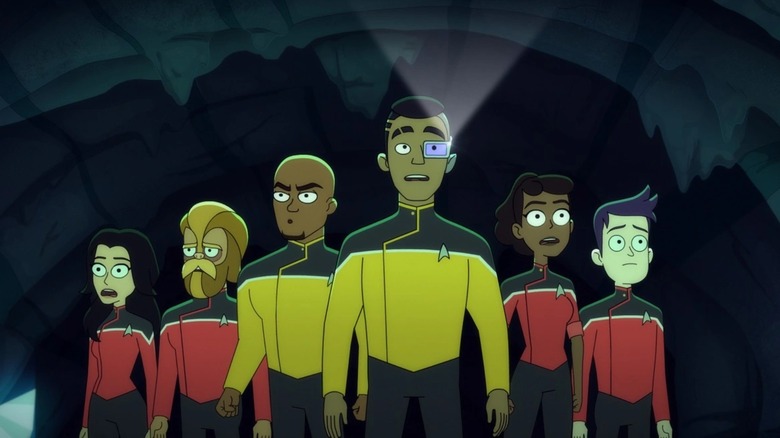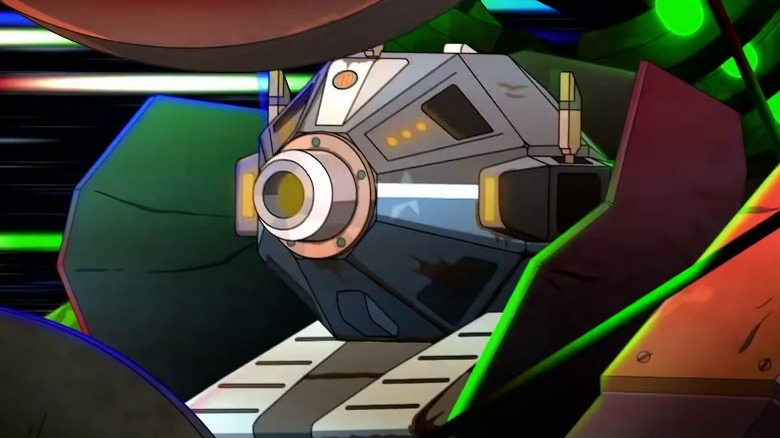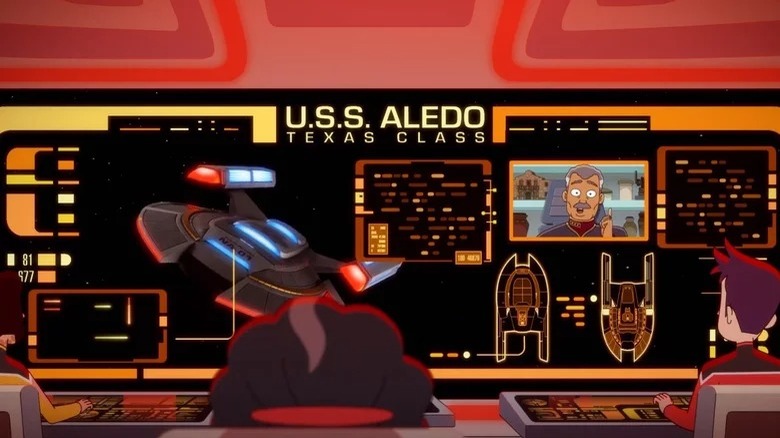Star Trek: Lower Decks Season 3 Was All About A Classic Trek Theme – The Misuse Of Technology
This post contains spoilers for season 3 of "Star Trek: Lower Decks."
"Star Trek: Lower Decks" likes to pretend it's the most carefree "Star Trek" show. In place of big monologues about the Prime Directive, it has clever in-jokes about the goofier aspects of the franchise. Instead of dramatic, tear-jerking moments, it has slices of brief sincerity sandwiched between quips and lighthearted moments. The show has a reputation to uphold: it's the "Solar Opposites"-flavored Trek, the Trek where people hook up, and the Trek that's all about the underdogs.
But now and again it becomes obvious that, despite everything, "Star Trek: Solar Opposites" cares. In fact, if you pay close attention to the episodic plots of the third season, it seems clear that it cares about some of the same things Trek writers have been caring about since the Gene Roddenberry days. Namely: the sometimes-horrifying amorality of technology.
This isn't so much an obvious throughline in this season as it is a recurring motif. It first appeared this season in "Mining the Mind's Mines," a great episode that features a callback to an infamous "Star Trek: The Next Generation" storyline, an introduction to the U.S.S. Carlsbad crew, and a cavalcade of spontaneously appearing nightmares. It also features a clever third act reveal, as the crew finds out that the planet they're visiting is pulling up targeted distractions and threats by data mining — from the depths of their own minds. A rock Captain Freeman (Dawnn Lewis) is given turns out to be a disguised listening device, as the very ground the crew stands on is designed to capture and cache data from their psyches.
Data mines, drones, and rogue exocomps
Of all the season 3 plotlines, this might be the show's cleverest. Like most of its episodic plots, the script deals with the plot with a light touch, without any characters commenting on the invasive and rights-violating nature of the data mining. After all, this is just the way this planet is made. But for viewers watching, the idea of brain-mining data collectors is kind of terrifying. In a world increasingly ruled by algorithms, listening devices, and inescapable cookies, big data is a huge and growing industry that's already slithered its way into our lives — in a way that doesn't seem like it can be undone.
The issue of thoughtless tech with no one at the wheel continues throughout the season. In "A Mathematically Perfect Redemption," the cowardly and selfish exocomp Peanut Hamper (Kether Donohue) basically delivers a crash course in how not to make second contact, acting against Starfleet's values at every turn when she lands on a planet she views as primitive and bird-brained. And the theme continues through the finale, in which the biggest threat to the U.S.S. Cerritos yet is the Aledo, the fully automated starship drone.
In "The Stars at Night," the Aledo and the Cerritos face off in a mission race, one that could see the entire California class decommissioned if they're not careful. The Aledo ends up overlooking a potentially vital biological reading on the planet, meaning the AI-run drone could have disrupted the life cycle of the planet without realizing it. In the end, the Aledo fully turns on the Cerritos, but the entire California class shows up in full force to save them. It's not unmanned technology that saves the day, but human grit and courage.
The amorality of unmanned tech
"Star Trek" has always been an optimistic franchise, one that sees technology as capable of facilitating tremendous positive changes. But the world of Trek has also long-since been wary of tech that falls into the wrong hands. Some of the most serious plots in "Star Trek" history involve mishandled science and technology, like the weapon the Xindi use in an attempt to destroy the earth in "Star Trek: Enterprise," the virus Section 31 engineered in "Star Trek: Deep Space Nine," and the human experiments that led to the classic "Star Trek: The Original Series" villain Khan.
"Star Trek: Lower Decks," for all its fun-loving hijinks and small-scale stories, takes this cautionary tale a step further: in 2022, the worry on writers' minds doesn't seem to be what technology may look like in the wrong hands, but what it could look like in no hands at all. It's a good question, and a nerve-wracking one to think about given the real-world applications it already has for every single person watching at home. It's also a question that "Lower Decks" will almost certainly continue to explore with its signature levity when the show returns. If anyone can (at least temporarily) solve a problem as insidious and widespread as amoral, fully automated technology, I'd bet the Cerritos crew can.


